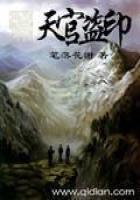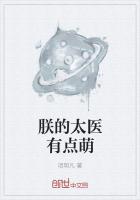Gordon was of opinion that it was capable of sustaining a siege of many months. With his usual vigour, he had already begun to prepare an elaborate system of earthworks, mines, and wire entanglements. There was a five or six months' supply of food, there was a great quantity of ammunition, the garrison numbered about 8,000 men. There were, besides, nine small paddle-wheel steamers, hitherto used for purposes of communication along the Nile, which, fitted with guns and protected by metal plates, were of considerable military value. 'We are all right,' Gordon told his sister on March 15th. 'We shall, D. V., go on for months.' So far, at any rate, there was no cause for despair. But the effervescent happiness of three weeks since had vanished. Gloom, doubt, disillusionment, self-questioning, had swooped down again upon their victim. 'Either I must believe He does all things in mercy and love, or else I disbelieve His existence; there is no half way in the matter. What holes do I not put myself into! And for what? So mixed are my ideas. I believe ambition put me here in this ruin.' Was not that the explanation of it all? 'Our Lord's promise is not for the fulfilment of earthly wishes; therefore, if things come to ruin here He is still faithful, and is carrying out His great work of divine wisdom.' How could he have forgotten that? But he would not transgress again. 'I owe all to God, and nothing to myself, for, humanly speaking, I have done very foolish things. However, if I am humbled, the better for me.'
News of the changed circumstances at Khartoum was not slow in reaching England, and a feeling of anxiety began to spread. Among the first to realise the gravity of the situation was Queen Victoria. 'It is alarming,' she telegraphed to Lord Hartington on March 25th. 'General Gordon is in danger; you are bound to try to save him... You have incurred a fearful responsibility.' With an unerring instinct, Her Majesty forestalled and expressed the popular sentiment. During April, when it had become clear that the wire between Khartoum and Cairo had been severed; when, as time passed, no word came northward, save vague rumours of disaster; when at last a curtain of impenetrable mystery closed over Khartoum, the growing uneasiness manifested itself in letters to the newspapers, in leading articles, and in a flood of subscriptions towards a relief fund. At the beginning of May, the public alarm reached a climax. It now appeared to be certain, not only that General Gordon was in imminent danger, but that no steps had yet been taken by the Government to save him.
On the 5th, there was a meeting of protest and indignation at St.
James's Hall; on the 9th there was a mass meeting in Hyde Park; on the 11th there was a meeting at Manchester. The Baroness Burdett-Coutts wrote an agitated letter to "The Times" begging for further subscriptions. Somebody else proposed that a special fund should be started with which 'to bribe the tribes to secure the General's personal safety'. A country vicar made another suggestion. Why should not public prayers be offered up for General Gordon in every church in the kingdom? He himself had adopted that course last Sunday. 'Is not this,' he concluded, 'what the godly man, the true hero, himself would wish to be done?' It was all of no avail. General Gordon remained in peril; the Government remained inactive. Finally, a vote of censure was moved in the House of Commons; but that too proved useless. It was strange; the same executive which, two months before, had trimmed its sails so eagerly to the shifting gusts of popular opinion, now, in spite of a rising hurricane, held on its course.
A new spirit, it was clear-- a determined, an intractable spirit-- had taken control of the Sudan situation. What was it? The explanation was ******, and it was ominous. Mr. Gladstone had intervened.
The old statesman was now entering upon the penultimate period of his enormous career. He who had once been the rising hope of the stern and unbending Tories, had at length emerged, after a lifetime of transmutations, as the champion of militant democracy. He was at the apex of his power. His great rival was dead; he stood pre-eminent in the eye of the nation; he enjoyed the applause, the confidence, the admiration, the adoration, even, of multitudes. Yet-- such was the peculiar character of the man, and such was the intensity of the feelings which he called forth-- at this very moment, at the height of his popularity, he was distrusted and loathed; already an unparalleled animosity was gathering its forces against him. For, indeed, there was something in his nature which invited --which demanded-- the clashing reactions of passionate extremes. It was easy to worship Mr. Gladstone; to see in him the perfect model of the upright man--the man of virtue and of religion-- the man whose whole life had been devoted to the application of high principles to affairs of State; the man, too, whose sense of right and justice was invigorated and ennobled by an enthusiastic heart. It was also easy to detest him as a hypocrite, to despise him as a demagogue, and to dread him as a crafty manipulator of men and things for the purposes of his own ambition.
It might have been supposed that one or other of these conflicting judgments must have been palpably absurd, that nothing short of gross prejudice or wilful blindness, on one side or the other, could reconcile such contradictory conceptions of a single human being. But it was not so; 'the elements' were 'so mixed' in Mr. Gladstone that his bitterest enemies (and his enemies were never mild) and his warmest friends (and his friends were never tepid) could justify, with equal plausibility, their denunciations or their praises. What, then, was the truth? In the physical universe there are no chimeras. But man is more various than nature; was Mr. Gladstone, perhaps, a chimera of the spirit?















